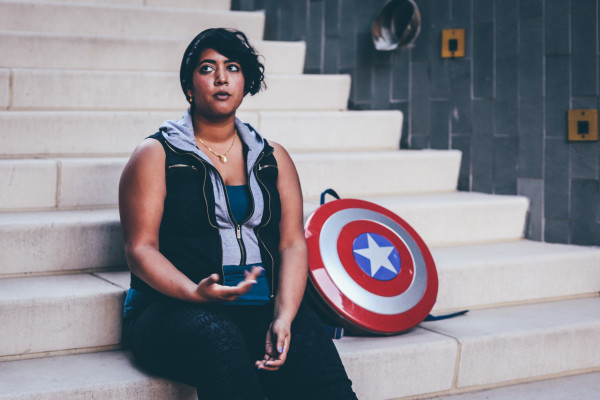From Nov. 9 to Nov. 13 The Flat Hat asked members of the College of William and Mary community how they were doing after the election. Responses were collected through an online form, over email, and in person. They have been edited and condensed.
[soundcloud url=”https://api.soundcloud.com/tracks/292578889″ params=”color=ff5500&auto_play=false&hide_related=false&show_comments=true&show_user=true&show_reposts=false” width=”100%” height=”166″ iframe=”true” /]
Shanay Butler, Administrative and Technological Coordinator in the English Department: “The day after the election everyone (at least in my office) had a feeling as if someone had died. No one was talking. There weren’t too many people hanging out around Tucker like they usually are. I think we were all just sad, then we got word that some of our students had been verbally attacked due to their skin color, look, or ethnicity and that made things ten times worse. My first question was, “Why?” Second question, “Why did this take so long to be addressed?” I myself being a minority was fearful in places that I’ve frequented my ENTIRE life. I looked at people in an entirely different light. Going to the store I felt different. Pumping gas felt different. I found myself looking at people and thinking if they were okay with me or if they wanted to say something disrespectful to me. I thought about my five year old daughter and her experiences at school. For the first time in my life, I was completely uncomfortable and uneasy everywhere outside of my home.”
Nico Villarreal ’19: “How has the election affected me? I have found myself caught between deep apprehension over the country’s next four years, longstanding disappointment of the Democratic Party, and a profound hope for its future.
By forsaking the working class in America and tying itself to corporate interests and neo-liberal elites, it has suddenly put the entire country at risk. Our civil liberties and rights, freedom of press and religion, are at risk more than ever before. Our Muslim, LGBTQ and Latino comrades are waking up to a world of emboldened hate. And women must now live with president with a vast history of misogyny.
But I have a sneaking suspicion that Trump’s bigotry and anti-political correctness aren’t actually indicative of real change from the status quo. Can charges of racism, sexism, islamophobia and the like really not be applied to previous Republican administrations? The only significant difference may be the uncouthness and vulgarity that Trump used to boost his anti-establishment narrative, which the media was all too happy to oblige in assisting. In the end, we may have found ourselves blasted back into the Bush years, a world where the power of the individual was sacrificed at the altar of corporate sovereignty, where the surveillance state expanded to unimaginable proportions, and we went to fight in senseless wars abroad.”
Zilin Miao ’18: “A lot of my fellow Chinese students, they are all concerned about this. Most of them, their reactions are just like, “should I move to Canada or find a job in Canada instead of the U.S.?”
Pallavi Rudraraju ’17: “[Election night] I pretty much like cried myself to sleep, I wasn’t even able to like calm myself down and go to bed, I just kept crying, and then I woke up and I was just like no, you’ve got to like pull yourself together. I just like went over to the library and I just started doing homework and then I just kept crying as I was doing homework. And it’s because basically it’s—this isn’t like a hopeful future. This sort of reality for people of color, queers, religious minorities, women, all that sort of stuff, it’s like, it’s not—it’s not helpful. I’m thinking like, okay, like reproductive rights aren’t going to be there anymore, I’m thinking of like North Carolina’s HB2 bathroom bills and stuff like that and that’s going to become the law of the land with like Mike Pence, and just this sort of rhetoric that’s been bringing up in the past year and a half or so, this has now been validated by Trump’s victory.
I wasn’t too pleased and then eventually I get over to Campus Center, because I needed to speak with the Dean of Students. I was asking my professor if I could move a test back a day, and he told me you have to literally speak to the Dean of Students because I can’t do anything for you. So I’m over there, I’m literally just like in the lobby trying to see if this Dean who I’m comfortable with, if she’s in so I can speak to her directly, and as I’m like looking up her, like if she’s in or not today, this like old White lady comes up to me and taps me on the shoulder and goes like, excuse me, and so I like turn automatically and she’s like have you been shot at today, have you been shot at yet today, and I just like really shocked, because like, when do you ask someone something like that? And I’m just like no, and then she says, ‘Oh, well, like just look at it, it’s very tempting,’ and she like slaps my backpack and walks away. And like, my backpack is a Captain America backpack, I guess it looks like a target if you—cause it’s like a lot of rings and stuff, but in the aftermath of that I’ve been asked by a detective like do you think it’s just because of your backpack, it does look kind of like a target, and I’m like, but you wouldn’t ask someone, you know, have they been shot at yet today, and then follow it up with like, it’s so tempting, if you had like no malicious intent there. And I’ve been asked like well, she’s an old lady and are you really threatened by her? And I’m like I think that even toddlers can kill people—we’ve had like, what, 20 deaths from toddlers killing their parents with guns? It doesn’t matter how old this lady is, she’s asking me if I have been shot at yet as if like it’s just a matter of time.
And I was too afraid to cross the street on Wednesday to begin with—all I had to do was like cross 10 foot of street and I was afraid that someone was going to like run me over. Like honestly I’ve been afraid of that for the past several months to begin with—I had someone almost run me over one time and that was more like because they didn’t see more or something, but that’s already a fear and then I’m now afraid that people who already are like they have these sort of bad like intentions towards like POC, like I already like, they have now been empowered by this election. I was really fearful because one of my best friends, Kyle, had literally said that a group of people said like ‘you better like watch out in Trump’s America,’ like that sort of thing. These aren’t just irrational fears coming out of me, these are literally based off of things that have happened to people on campus. Like I genuinely did not feel safe at all on Wednesday or Thursday, or even Friday.
I’ve been starting to feel a little bit better now, but that’s not because I think the threat is any less real, it’s just more like I’m personally feeling stronger myself. I always tell people—like I was a tour guide over the summer, and then I’m a senior interviewer still so like I was always tell people like yeah, this is like the safest place, yeah, like this is the safest place on Earth, like this is the safest place I’ve ever lived in and I’m from northern Virginia which is pretty safe—like that’s what I tell people, and now I can’t tell people that anymore, because I don’t want to lie to these potential incoming students. And that really sucks because a lot of people chose this school in particular because they’re like, this is a safe place. It’s no longer a safe place.
And like, it’s not cool to have to go to school and pretend like nothing’s up, and it’s not cool that this is a place which I’m supposed to call my home but now I lock my door which I never used to do. Like I lock my door on the way to the bathroom even for just a two-minute little thing. This isn’t the sort of reality I want to be in.”
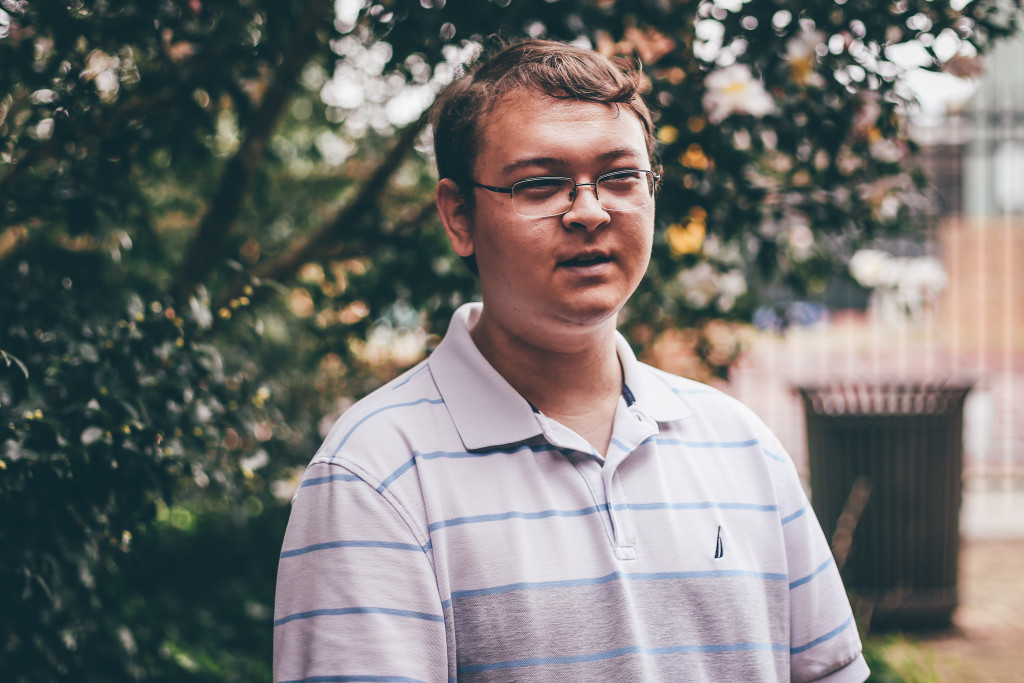
Chris Harrington ’20: “The next day I was honestly pretty happy, but it’s not because Trump won, I was happy because Hillary lost, that’s really where that came from.”
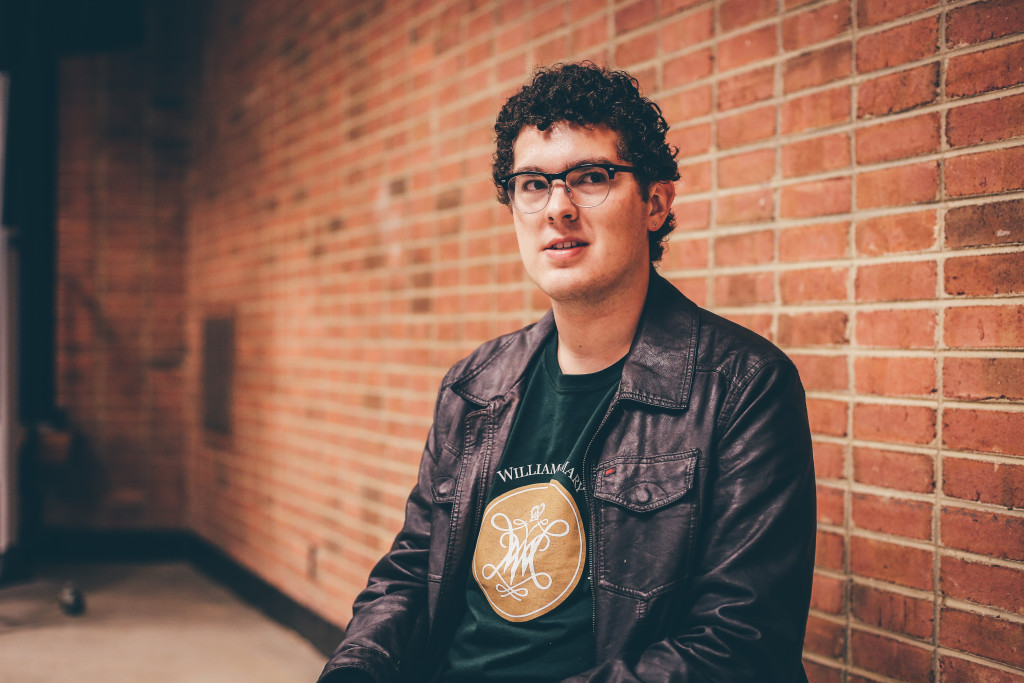
George Valdes-Depena ’19: “I’m terrified, but not surprised…although we already see some of his promises fading away, the core tenets survive, as well as his now-emboldened violently racist, sexist, homophobic, and xenophobic supporters.”
Afua Asenso ’19: “I mean it’s hard to even comprehend the impact…we were laughing at Brexit, but look at this, this is a joke.”
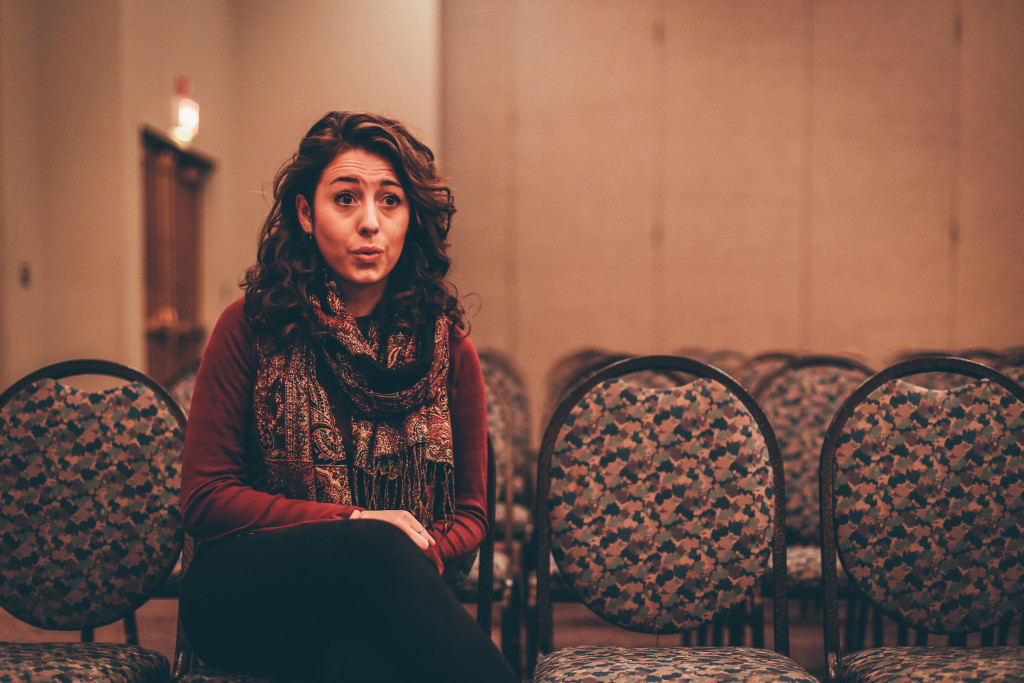
Victoria Johnson ’17: “I’m definitely upset, but I’m also encouraged by what I see around me, and by the people who are reaching out and recognizing pain and seeking to move forward in that. I think because of that, there will be change…but today I am upset.”
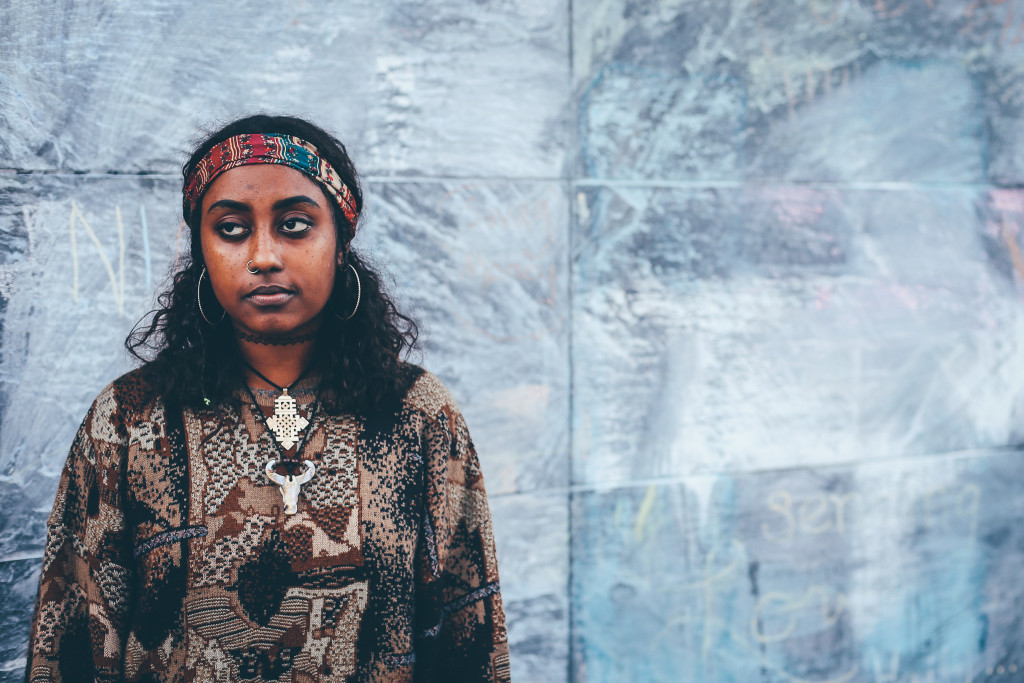
Phoebe Mariam ’19: “Last night I was studying late and had to walk home after dark. The 8 minutes it took me to walk from Swem to OTP were some of the scariest 8 minutes of my life. I exist as the antithesis of everything Trump has preached in his platform and his rallies. I am a first generation immigrant black female. To him, I should not be educating myself. To him, I should not be able to live in this country. To him, my citizenship means nothing. To him, my color is offensive. To him, my sex is threatening. One needs only to watch a video of one of his rallies to know I am not lying, as he has said all these things publicly and shamelessly. I am terrified to go to class, because so many people I know have been harassed and targeted because they are part of a marginalized group. People who are not terrorists and who are not illegal aliens. Yes, I agree we shouldn’t be burning the flag or using force, but right now millions of people’s LIVES are in danger. A loved one of mine’s life was threatened yesterday in DC while he was at work, to the point where he wont even go back for the rest of the week because he doesn’t feel safe. I now carry my pepper spray in my bookbag, where it sits right beside my calculator. On campus, I have witnessed Trump supporters verbally threaten and harass people because of the color of their skin or what they identify as. I have spent the last 4 days trying to figure out how to survive in a country that has voted for ideologies that sentence POC, LGBTQ+, Muslims, women, and immigrants to death. How has the 2016 Presidential Election affected me? It has made me scared to death. It has made me cry. It has opened up the real possibility that I may lose so many good people whom I care deeply for just because of the color of their skin, or who they love. It has made me mourn for the many steps we have taken backwards. But in the face of grief and frustration, it has made me even more resilient and determined to spread the message of equality, unity, inclusion, and love.”
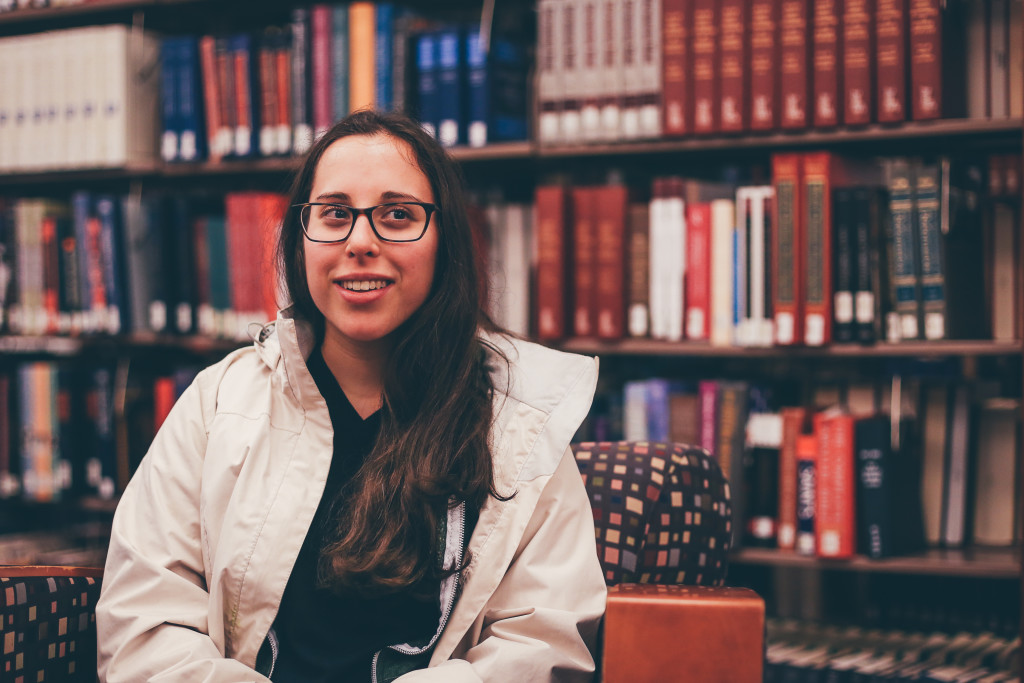
Julia Burzynski ’17: Wednesday, November 09, 2016 was the 78th anniversary of Kristallnacht. Kristallnacht was the night where Synagogues were attacked, Jewish businesses were destroyed, prayer books and books by Jewish authors were burned in the streets. Wednesday 11/09/2016 was also the night that Trump was elected president of the United States. A man who not only publicly professes hate, but whose hate has created a forum for others to be hateful and even harmful towards others… My grandfather was a Holocaust survivor. At this time it’s extremely important for people to remember the divisiveness and detriment of hate.
Corinne Loiseau ’18: It was three o’clock in the morning in France and I knew it was time for me to go to bed — I would need to get up and go to class in just a few hours. But Trump was ahead by a few points, and I just couldn’t sleep. I was upset by what this could mean for U.S. citizens…but I was also upset by what this meant for the American identity abroad.
I had already spent three months studying in France and interacting with students from all over the world, and the question I had been asked the most was, “Oh, so you’re American? What do you think of Trump?” It was clearly the first thing that came to mind when international students thought about the United States.That’s because they’ve been watching us closely. They read our news. They follow us on social media. They stay up late to watch the presidential debates. It’s sort of strange that the U.S. gets all of this attention – we probably don’t deserve it – but it does, and people care. They’ve been judging the United States and all of its citizens based on this election, which makes a lot of sense. Doesn’t who we chose to represent us say a lot about who we are?
So at eight o’clock, I was still sitting up in the same position in bed. I was shaking, from lack of sleep and from fear. Trump was clearly going to be the winner of the electoral college. Trump was going to be our next president, and I was going to have to explain this to my newfound international friends. I went through the motions of getting ready for the day, and eventually found myself waiting at the bus stop. There were French citizens, about my age, standing there too. “C’est incroyable” one of them said. His friend nodded and replied, “I can’t believe he actually won.” The third one said, “How stupid are they?” I looked down at my feet.
My first course of the day was French Politics, but the professor dedicated the first thirty minutes of class to the U.S. election. She asked if the American students could explain how and why Trump was elected. The five of us in that class just sat there, shaking our heads. We were in too much shock to be able to look at this from a political science perspective. We weren’t ready to analyze voter turnout and campaign strategies. We were still processing.
So other students, from other countries, jumped in. Some talked about anti-establishment anger, others mentioned people wanting change, no matter what that change was. But the most striking response — and the one that concluded the discussion — was, “Basically half of America has been racist this whole time and now they think they can be loud about it.”
This is what European students now think of us. Of course, they realize that not every American is the same. They know that our country is incredibly divided. They realize, just as I do, that Trump supporters voted for him for a wide array of reasons. But when they think of us as a group, they see the elected head of our country as our representative. So for the next four years, no matter what great things our country has and will accomplish, the world will see us as a whining, angry, orange-colored, racist and sexist old man. And I’m not okay with that.
Derin Dacey ’15: “This election has created some major stress for me. While I supported and volunteered for Secretary Clinton, I was never super excited about her. But, I knew the risks that Donald Trump presented and was determined to not let him win. Obviously that didn’t work out. As a gay man I worry for my safety under a Trump administration. I have never bought for a second Trump’s stated support for the LGBTQ community. If he did support us he wouldn’t have brought on Mike Pence, a noted social conservative, as his VP. More than my safety though I worry for those I love. My boyfriend is a queer disabled Latino (three groups that Trump has, at various times, disparaged). While he is a citizen, he has family who are undocumented and I fear they are at risk given Trump’s harsh rhetoric on immigration. Beyond Trump’s rhetoric and potential policies are the reactions of some of his supporters, who are emboldened to embrace their own sexist, racist, and anti-immigrant views. Racist acts are occurring nationwide. Am I at risk of being harassed or attacked? Are my friends, many of whom are people of color, immigrants, and/or queer at risk? Meanwhile, many of my friends must worry about Trump’s policies and whether they or their families might be deported, that they might lose access to necessary healthcare, that their rights might be infringed or limited, and that their communities might no longer be safe for them. I cried my tears over Secretary Clinton’s loss. Then I got up and decided to fight. I don’t have to like the outcome of the election but I accept that Trump won. Now it’s time to push back against his corporate, racist, ableist, homophobic, anti-immigrant, and Islamophobic policies and stand up for the rights of those I care about the most.”

